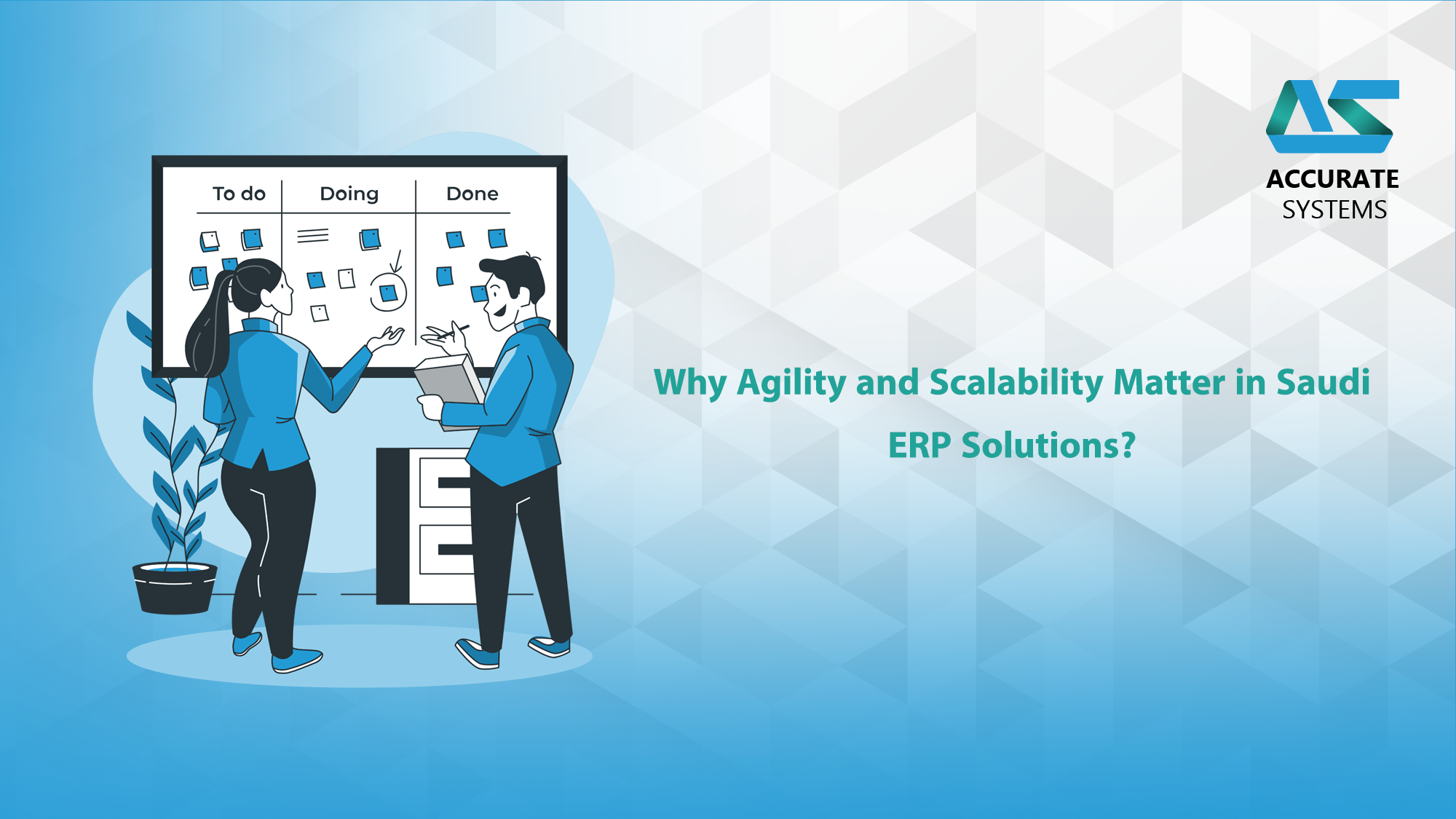In today’s fast-paced Saudi Arabian market, agility and scalability have become essential for businesses aiming for growth and digital transformation. For companies expanding operations or adjusting to new regulations, a robust ERP (Enterprise Resource Planning) solution is crucial. This article examines why agility and scalability in ERP systems are critical for organizations in Saudi Arabia, highlighting key benefits and considerations.
Agility in ERP Solutions: The Need for Quick Adaptability
An agile ERP system is designed to respond swiftly to shifts in business processes, market dynamics, and regulatory requirements. Here’s what defines agility in an ERP:
- Flexibility: An agile ERP must adapt to varied business models and industry-specific needs. This means supporting unique workflows and processes essential for sectors like manufacturing, healthcare, and retail.
- Configurability: Users should be able to customize dashboards, reports, and workflows with minimal IT intervention. This ease of configurability empowers teams to personalize the system to their needs.
- Rapid Deployment: A streamlined implementation process minimizes disruption, ensuring businesses quickly realize the value of their ERP investment.
- Continuous Improvement: An agile ERP should enable ongoing upgrades and updates, ensuring the system keeps pace with technological advancements and evolving market demands.
Why Agility is Important for Saudi Enterprises
In Saudi Arabia, businesses face frequent regulatory updates, especially with ZATCA’s e-invoicing requirements. Agile ERP solutions can adapt to these requirements swiftly, reducing compliance risks.
The Power of Scalability in ERP Systems
Scalability refers to an ERP’s capacity to accommodate growth without compromising performance. This is essential for businesses looking to expand locally and internationally.
- Increased User Load: A scalable ERP supports more users as the company grows, ensuring that more employees can access data without slowing down the system.
- High Transaction Volume: During peak periods, a scalable ERP manages high transaction volumes, making it suitable for businesses with seasonal demands.
- Seamless Integration: As businesses grow, they may need to integrate with additional systems like CRM, SCM, or financial software. Scalable ERPs support such integrations, promoting data flow and automation.
- Multi-Location Support: For companies expanding within the Gulf or globally, the ERP should support multiple locations, currencies, and time zones, offering consistent performance across regions.
Why Scalability Matters for Saudi Businesses
The Saudi market is increasingly competitive, and companies need ERPs that scale with them, ensuring they’re equipped to handle growth and operational changes.
ERPNext: An Ideal Solution for Saudi Agility and Scalability
ERPNext, an open-source ERP, is an increasingly popular solution in Saudi Arabia for its versatility and low-cost structure. Here’s why ERPNext is a compelling choice for Saudi enterprises:
- Scalability: ERPNext scales to accommodate growing businesses, managing high user numbers and transaction volumes efficiently.
- Flexibility: This ERP offers a modular approach, enabling businesses to implement only the features they need.
- Customization: ERPNext can be tailored to specific business processes, supporting sector-specific workflows.
- Cost-Effectiveness: As an open-source platform, ERPNext has lower licensing costs, with a vast community for support and development.
- Cloud-Based Deployment: Available both on-premise and in the cloud, ERPNext offers flexibility, supporting both centralized and remote work models.
Key Considerations for Saudi Enterprises Adopting ERP Solutions
For Saudi businesses, selecting an ERP solution requires careful assessment. Here are crucial factors to consider:
- Cloud vs. On-Premise: Cloud-based solutions provide scalability and easy updates, while on-premise options offer greater data control and security.
- Mobile Accessibility: With mobile ERP, team members can access information and make decisions remotely, crucial for industries like construction and retail.
- Localization and Compliance: ERP solutions should comply with Saudi regulatory standards, including Arabic language and local currency support.
- Vendor Support: Choosing an ERP vendor with local expertise ensures smoother implementation and ongoing support, minimizing operational disruptions.
Conclusion: Leveraging Agility and Scalability in Saudi ERP Solutions
By focusing on agility and scalability, Saudi businesses can utilize ERP solutions like ERPNext to drive sustainable growth, improve operational efficiency, and stay competitive. An agile, scalable ERP system allows organizations to respond quickly to market opportunities, ensuring long-term success.


